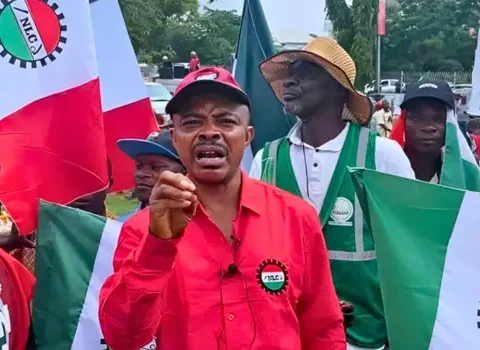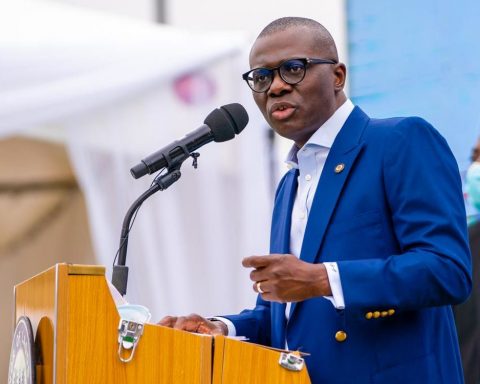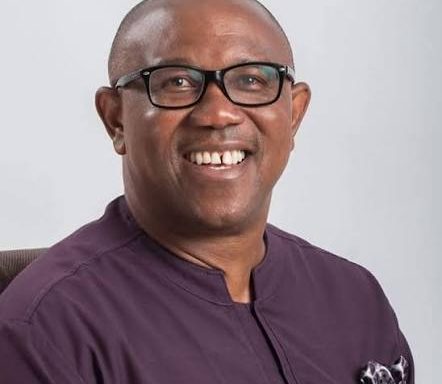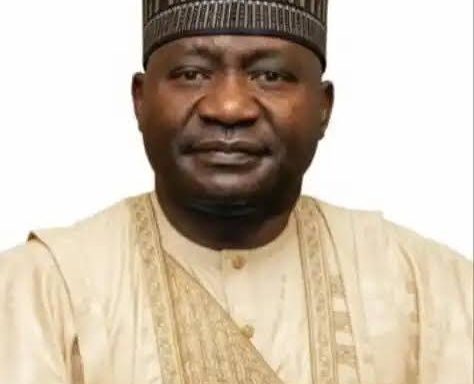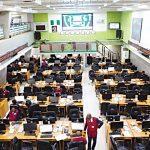Hospitals and health centres across Nigeria have been severely affected as the seven-day warning strike, by the National Association of Nigeria Nurses and Midwives (NANNM) entered its third day, forcing the shutdown of critical medical services and stranding thousands of patients nationwide.
The industrial action, which began at 12:01 a.m. on Wednesday, has crippled operations in both federal and state-owned hospitals, with many facilities reporting mass patient discharges, abandoned wards, and limited skeletal services where possible.
Join our WhatsApp ChannelThe strike followed a deadlocked meeting held on Tuesday, July 29, between the leadership of NANNM and the Federal Ministry of Labour and Employment. According to a statement issued by NANNM National Secretary, Chidi Aligwe, the Federal Government failed to meet the union’s demands despite extensive deliberations at the ministry’s conference hall in Abuja.
“All the demands of the association were analysed critically. However, the ministry and the association could not come to a conclusion on how to address all the demands for the overall interest of the nurses/midwives and the healthcare sector in Nigeria,” the union said.
Present at the meeting were representatives from the Federal Ministry of Health, the Office of the Accountant-General of the Federation, the Budget Office, and the National Salaries, Income and Wages Commission. The meeting was later adjourned to an unspecified date, pending the presence of the Minister of Health, officials from the Office of the Head of the Civil Service of the Federation, and other key agencies. With no agreement reached, the union confirmed the commencement of the warning strike, calling for total compliance nationwide.
Speaking on Wednesday, Minister of Labour and Employment, Muhammad Dingyadi, appealed to the striking nurses to reconsider their stance. “The minister urged the association to embrace dialogue while the government continues to work on addressing their concerns,” said Patience Onuobia, spokesperson of the ministry.
The nationwide action has significantly disrupted healthcare delivery in major cities including Lagos, Kano, Enugu, Port Harcourt, and Abuja. Emergency services, antenatal care, and routine admissions have been suspended in many hospitals, while doctors and non-striking staff struggle to manage increasing patient loads.
READ ALSO: Nigerian Leaders Penchant For Medical Tourism Amid Poor Domestic Healthcare System
How Smart Nigerians Are Winning On Healthy Eating
The union’s demands include the creation of a Department of Nursing at the Federal Ministry of Health; 30% shift duty allowance; 20% specialist allowance; an upward review of the uniform allowance to ₦300,000 annually; and proper representation on the boards of health institutions and the Nursing and Midwifery Council of Nigeria.
The nurses are also demanding structured internship programmes, improved working conditions, and urgent reforms to the nursing verification and recruitment system. NANNM had earlier issued a 15-day ultimatum to the government on July 10 before declaring the strike.
This is the first major nationwide strike by nurses in over 40 years, and it comes amid a worsening healthcare workforce crisis. More than 42,000 nurses have migrated overseas between 2022 and 2025, according to the Nursing and Midwifery Council of Nigeria, fueling fears of systemic collapse if urgent reforms are not implemented.
NANNM President, Michael Nnachi, described the strike as a last resort. “We are not just demanding better pay; we are asking for a professional structure that protects both staff and patients,” he said.
The Nigerian Medical Association (NMA) has expressed solidarity with the striking nurses and called on the Federal Government to act swiftly to prevent a total breakdown of the healthcare system.
Amanze Chinonye is a Staff Correspondent at Prime Business Africa, a rising star in the literary world, weaving captivating stories that transport readers to the vibrant landscapes of Nigeria and the rest of Africa. With a unique voice that blends with the newspaper's tradition and style, Chinonye's writing is a masterful exploration of the human condition, delving into themes of identity, culture, and social justice. Through her words, Chinonye paints vivid portraits of everyday African life, from the bustling markets of Nigeria's Lagos to the quiet villages of South Africa's countryside . With a keen eye for detail and a deep understanding of the complexities of Nigerian society, Chinonye's writing is both a testament to the country's rich cultural heritage and a powerful call to action for a brighter future. As a writer, Chinonye is a true storyteller, using her dexterity to educate, inspire, and uplift readers around the world.



